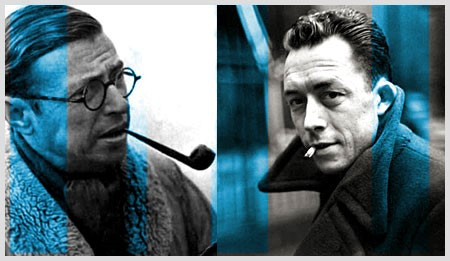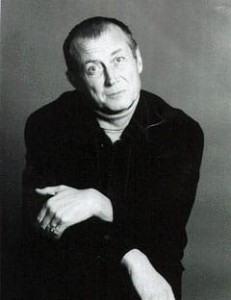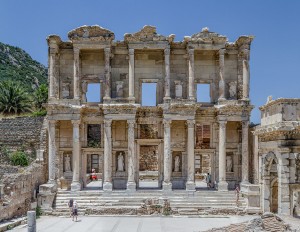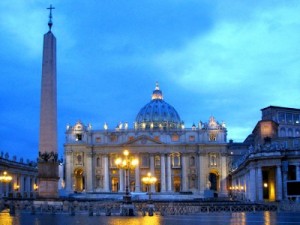
Jean-Paul Sarte, and Albert Camus
=By= Gaither Stewart
The unequal relationship between fictional literature and psychoanalysis has always rankled literary critics whose task it is to clarify, interpret, classify, rank and, especially in cases of political literature, bad-faith critics grant themselves the right to brand and censor literature. While the responsibility of literary criticism often fails to perform positively (especially concerning the political novel), it is true that the entire realm of literature has consequently had to bow to the “scientific” authority of psychoanalysis and its claims of dominion over the mysteries of the writer’s “unconscious”, whereby it interprets and informs what the writer, on the deepest level, is really saying with his words crafted in such a manner as to create “literature” from what would otherwise be just texts of connected words.
Today, perhaps, due to a simultaneous tendency of literature and literary criticism to recognize the role of psychoanalysis and the tendency of psychoanalysis to step down a bit from its scientific pedestal from which, because of its “special knowledge”, it has claimed a monopoly in the realm of meaningful interpretation of the body of language that is literature. the two realms show signs of drawing closer together.
Meanwhile, the poor lonely writer—you might sympathize—is still squashed between literary critique on the one hand and scientific interpretation on the other. Just imagine the situation from the writer’s point of view. The writer, who in a long, arduous and lonely act has created a story from scratch and composed a text that qualifies for the denomination of “literature”, hopes his genius has produced real art that will appeal to the formidable array facing him consisting of publisher, reader and critic.
On the completion of the work, the writer’s fundamental role ends. The good writer in fact steps aside. The rest is salesmanship and exposure. The responsible publisher who has hovered in the background thus far has nonetheless been performing multiple crucial tasks: at the very start he chose a text he believes will appeal to many readers, a text hopefully favorable to critics and to the media and if possible to academia as well.
Literary critics will then “translate”, approving or sacking the poor writer’s text for the public, judging it and explaining to readers what the writer says in his work. Up to this point the swimmers in the literary pond comprise elements directly involved in the production and dissemination of the final product.
It is here—not a specific point in time—that a fifth component enters the scene like an swashbuckling invader—the psychoanalyst—who will interpret the interpretations of the literary critics, delving into aspects of the facts, events, characters in the text and the persona of the author from which he or she draws conclusions from the “unconscious” (Freud) of the writer and his characters, conclusions capable of stunning and bewildering the poor unsuspecting creator who naively believed that only his genius had dreamed up and created the whole thing.
So how did he do it? As a rule, memory provides the material. Childhood, life experiences with other persons, and with the Other encountered in a full life. Day-dreams and fantasies, even those the writer is ashamed of (the use of which often results in the writer being considered naïve and childish) are treasure houses of material, also for the analyst.
Many writers use their dreams for ideas and inspiration in their literary creations. Years ago I underwent one year of therapy because of psychological problems resulting from the tragic loss of a loved one. My German therapist, a Freudian , prompted me to begin recording and making a “conscious” effort to remember parts of my rich and active dream life. Doing that I became aware of how difficult it is to recount even the most vivid dream about which I had even made notes during the night. That difficulty is well-known to creators of the arts. The gap between the vivid, significant dream and the ragged bits and pieces you succeed in assembling and reproducing is a veritable morass of memory and language capacity. The words you manage to save (or liberate, according to Freud) emerge vague, gray and dull, incommensurate with the original. It is the same as the difference between your real-life experiences, what you see or do in reality and the deficient and pale words you find to describe in a literary fashion that experience and what you really felt about the experience at the time.
Therefore, the materials, i.e. the emerging words the writer offers analysts, are simply too scant, too untrustworthy for analysis because deformed, distorted, perverted and corrupted in the reporting process, if not simply made up on the spur of the moment, so that the analyst searching for the thus far “inaccessible” in the unconscious mind of the subject is forced to accept as a given a false image of reality. As a result the analyst too must improvise.
Imagine then the difficulty for the writer of political fiction, whose only resource is some kind of compromise between what he feels he must say and the diluted expression of the idea. For, both critic and analyst will respond not with criticism or analysis of the literary text but with a rebuttal based on their own personal political ideas or opinions as to what the writer said or should have said, a criticism or analysis that will be more and more deformed as it passes down from hand to hand, as with, say, the philosophies of Marxism or, to cite the most deformed and maligned, Leninism.
To underline the manner in which scientific/academic analysis—because of the absence of authentic information—deforms and corrupts instead of clarifying the writer’s intentions, I will employ again the anecdote related by Socrates in The Republic about the difficulty of ever attaining real truth, which I used in my novel, Time of Exile. For me his metaphor of the three beds will always be emblematic of the problem of the degeneration from the ideal to the banal. According to the Socrates metaphor, the first bed, made by God, is the Platonic ideal; a carpenter then makes a second bed in imitation of that ideal bed; and the artist subsequently paints a third bed in imitation of the carpenter’s imitation of the ideal bed. Later imitators then capture less and less of the ideal. They might just barely graze the reality of a carpenter making a bed or of an artist painting a carpenter making a bed, but they can never attain the true ideal of the original creation.
MARXISM AND EXISTENTIALISM
These two philosophies provide a wealth of materials for the contemporary fiction writer, who, if the writer is honest, cannot even conceive of an authentic novel without them. Both Marxism and Existentialism are materialisms close to human existence. “Both reveal an area in which human consciousness is not ‘master in his own house.’” (Frederic Jameson, “Marxism, Psychoanalytic Criticism, and the Problem of the Subject”, included in the anthology Literature and Psychoanalysis, Johns Hopkins Press, 1982).
The two philosophies present a number of common major themes: the relation of theory and practice; the resistance to false consciousness and the problem of its opposite; the role and the risk of the concept of the “midwife” of truth, whether analyst or vanguard party; the re-appropriation of an alienated history and the function of the narrative; the question of desire and value and of the nature of “false desire”; the paradox of the end of the revolutionary process, which, like analysis, must surely be considered “interminable” rather than “terminable”. (A list composed by Jameson, who adds:) “It is therefore not surprising that these two nineteenth century philosophies should be the objects, at the present time and in the present intellectual atmosphere (Cold War), of similar attacks, which focus on their ‘naïve semanticism.’”
Jean-Paul Sartre in his Question de Mode sees Marxism as the dominant philosophy of his era (20th century) and existentialism as a reinforcing element. He thought at one time that Marxism was corrupted by the Soviet Union and other Communists who abused the system of thought, making it a tool for policies of the USSR.
According to Sartre’s form of Existentialism “existence precedes essence”. Existentialists from Soren Kierkegaard to the contemporaries Sartre and Albert Camus believed that philosophical thought begins with the living human subject. Its supreme values are freedom of the individual and authenticity. Other philosophies are too abstract, too remote from the human experience. For Sartre and Camus, for example, the existentialist attitude is one of disorientation in the face of a meaningless or absurd world.
For that reason Sartre in general has a low opinion of traditional ethics which he condemns as a tool of the bourgeoisie to control the masses, thus again reinforcing Marxist thought. Nor is he enamored of Freud’s unconscious which he considers a scapegoat for the paradox of simultaneously knowing and not knowing (in the conscious and the unconscious minds) the same information.
I like to imagine Sartre and Camus sitting at their table in Café de Flore on Paris’ Boulevard St. Germain exchanging experiences and thoughts. In my imagination Sartre might say something like: “The bourgeoisie’s support for liberals has always been and always will be a great mystification to confuse the revolutionary. That is the reason for our mistrust of bien-pensant liberals, yesterday as today. The more liberals turn to the Right, the happier the bourgeoisie and the greater its support for ‘liberal’ causes. And therefore the marriage of (bourgeois) liberal democracy and market capitalism.”
And Camus might respond: “The gap between the people and what we call bourgeois capitalism is by definition unbridgeable. Meek protest does not count a whit. (Updating Camus several decades, I let him continue): “Though the ultimate tremendous effect on the American people of the wars in Afghanistan and Iraq is unimaginable, popular protest still goes unheeded. It is really quite simple: superpowers should never be confused with democracies.”
A veteran journalist, essayist, and internationally recognized novelist, Gaither Stewart serves as The Greanville Post European correspondent. His latest novel is Time of Exile (Punto Press), third volume in his Europe Trilogy, of which the first two volumes (The Trojan Spy, Lily Pad Roll) have also been published by Punto Press. These are thrillers that have been compared to the best of John le Carré, focusing on the work of Western intelligence services, the stealthy strategy of tension, and the gradual encirclement of Russia, a topic of compelling relevance in our time. He makes his home in Rome, with wife Milena. Gaither can be contacted at gaithers@greanvillepost.com.
More Posts








